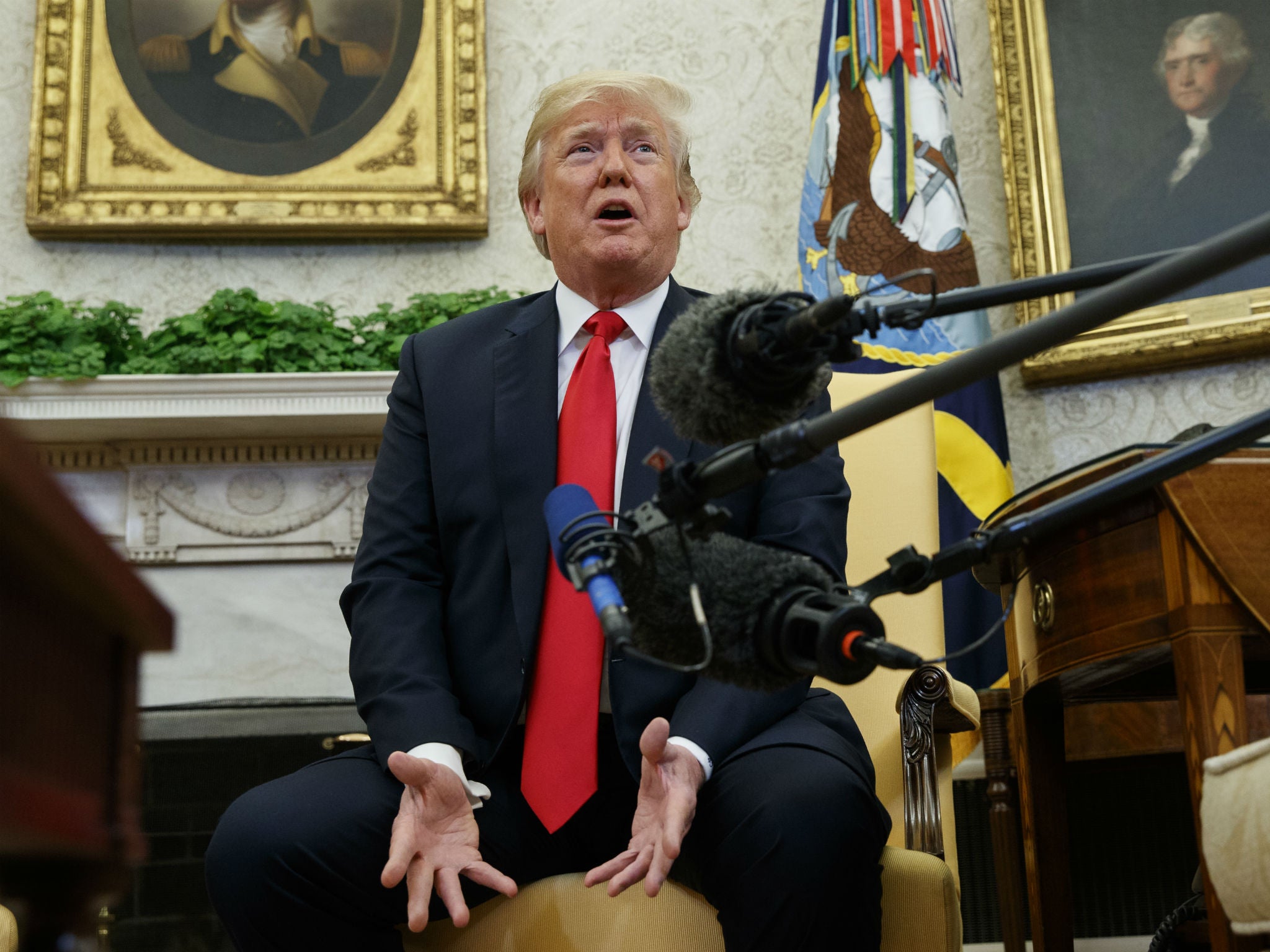Your support helps us to tell the story
From reproductive rights to climate change to Big Tech, The Independent is on the ground when the story is developing. Whether it's investigating the financials of Elon Musk's pro-Trump PAC or producing our latest documentary, 'The A Word', which shines a light on the American women fighting for reproductive rights, we know how important it is to parse out the facts from the messaging.
At such a critical moment in US history, we need reporters on the ground. Your donation allows us to keep sending journalists to speak to both sides of the story.
The Independent is trusted by Americans across the entire political spectrum. And unlike many other quality news outlets, we choose not to lock Americans out of our reporting and analysis with paywalls. We believe quality journalism should be available to everyone, paid for by those who can afford it.
Your support makes all the difference.Brussels has unveiled details of measures that would block American sanctions against European companies trying to do business with Iran, in a bid to head off Donald Trump’s new economic assault on the Middle Eastern county.
The US president announced the re-introduction of the anti-Iran sanctions as he confirmed US was breaking the international deal designed to put a stop to the country’s nuclear programme – with the end to sanctions as a reward for compliance.
Mr Trump’s administration has not ruled out hitting European companies that trade with Iran with its new measures, so the EU has now responded by updating a “blocking statue” originally meant to circumvent a the US embargo against Cuba in the 1990s.
The move would prohibit EU-based companies from complying with the US sanctions, and provide compensation if they were affected by American penalties against them.
“As long as the Iranians respect their commitments, the EU will of course stick to the agreement of which it was an architect - an agreement that was unanimously ratified by the United Nations Security Council and which is essential for preserving peace in the region and the world,” Jean-Claude Juncker, the European Commission president, said on Friday morning.
“But the American sanctions will not be without effect. So we have the duty, the Commission and the European Union, to do what we can to protect our European businesses, especially small and medium enterprises.”
The European Parliament and European Council will be allowed to scrutinise the new policy; it was unanimously agreed by EU heads of state and government at a summit in Sofia this week. The original blocking clause was never actually used when it first drawn up to circumvent the US’s anti-Cuba embargo in 1996.
We have the duty, the Commission and the European Union, to do what we can to protect our European businesses
The EU has also announced that the financial might of the European Investment Bank will be brought to bear to back EU projects in Iran, and that “one-off” transfers to Iran’s central bank would be explored. Energy commissioner Miguel Arias Cañete will alsovisit the Iranian capital of Tehran this weekend to explore the possibility of more financial development assistance to Iran.
The measures all represent an attempt to save the Iran nuclear deal, known officially as the Joint Comprehensive Plan of Action (JCPoA). Even before Mr Trump pulled the US out of the deal, Iran complained that the 2015 deal was not yielding the expected economic benefits. Iran and the deal’s other signatories, the UK, Germany, France, EU, China, and Russia, all say they want the agreement to continue and that the US does not have the power to terminate it unilaterally.
On the Iranian side the deal was seen as a triumph for Hassan Rouhani, the country’s president, who is seen as straddling the Islamic Republic’s moderate and reformist factions. Mr Rouhani had to face down hard-liners on his own side to sign the deal, who opposed reconciliation with the US.
The deal is equally politicised in the US, where it is seen as a major legacy of Barack Obama’s foreign policy. The deal is also staunchly opposed by Israel, a key US ally in the region.
The dispute over the JCPoA is running parallel to another row between the US and EU over steel and aluminimum tarrifs that Mr Trump plans to impose on EU and other countries' imports. The EU has said it will negotiate with Mr Trump to improve US companies' access to European markets, but only if he first pledges to permanently exempt Europe from the sanctions.
Boris Johnson and his European counterparts met with Iranian foreign minister Mohammad Javad Zarif in Brussels this week in an attempt to find a way forward.
Under the deal Iran agreed to dramatically cut its enriched uranium stockpiles and its capacity to enrich uranium in the future. The IAEA gained full access to Iranian nuclear facilities under the deal to monitor its implementation. In exchange, the other countries agreed to lift sanctions.

Join our commenting forum
Join thought-provoking conversations, follow other Independent readers and see their replies
Comments